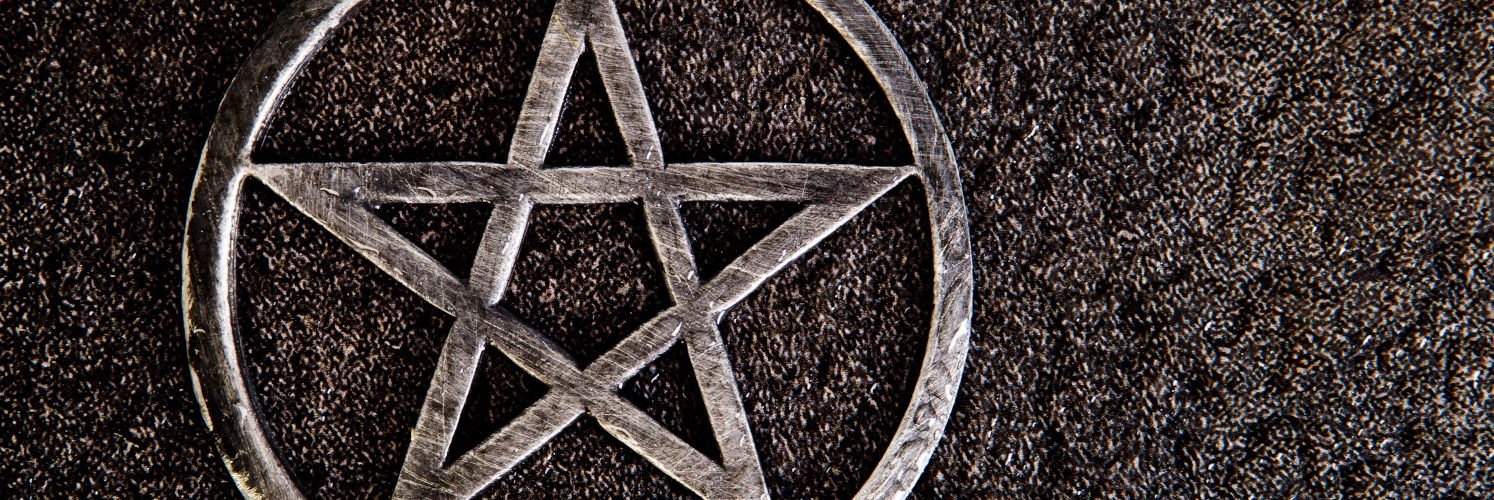My parents were very observant of the Episcopal faith when I was growing up. My father was a lay minister, my mother was a leader in our congregation’s St. Anne’s Guild, I was an acolyte and later a crucifer. The kids all went to Sunday School and Children’s Chapel. As we got older, we took catechism classes and confirmed our commitment to Jesus Christ. There was a time when I wanted to go to seminary and become an Episcopal priest. My life was steeped in religion and spirituality, both that of my parents and that of my own discovery. I look at where I am now, having walked the Pagan path for over twenty years, and wonder what it was that helped me make peace with a faith tradition that just didn’t fit me no matter how hard I tried to ‘fake it till you make it.’
It was Pagan Pride.
I felt a great deal of shame for leaving Christianity. On one hand, I felt like I was coming home to Wicca. On the other, I felt like I was doing something wrong by charting my own spiritual course. Like I was disappointing both my family and God Himself. Like I’d better at least try to keep a nodding acquaintance with Jesus in case I found myself needing Him on my deathbed. It was at Pagan Pride events, both in Arkansas and in Missouri, where I met other people and heard other perspectives – some helpful, some not – and gave myself permission to grow into my chosen faith instead of continuing to try to assimilate into a faith that didn’t suit me.
Pagan Pride was not at all like Gay Pride. There was a place for me at Pagan Pride. There were all sorts of people, many of them women and femmes, who were in leadership roles, who were teaching workshops and organizing rituals, who were approachable and downright pleasant to be around. Gay Pride, on the other hand, was an overwhelmingly aggressive experience. Between the rainbow capitalism and the gatekeeping and the folks who seemed to take delight in shock value, it was very difficult to enjoy the festivities as a young Queer person. There didn’t seem to be a place for me, and it did nothing to make me feel welcome, safe, or affirmed.
While Pagan Pride made me feel like a part of a real community, Gay Pride made me feel like more of an outcast every passing year. Looking back on the experience, it was probably because Gay Pride as a movement has turned into a month-long celebration of financially-secure, cis, white, gay men touting their patriarchal, colonialist, assimilationist ideals. And I wasn’t looking for that kind of scene. I wanted community – stable community – with people who were like me, who were also discovering the reality of their gender and the full depth and breadth of their sexuality, who were finding ways to upset the norms and embrace every person for the unique experience they are. It didn’t take me long to realize that the LGBT community and the Queer community were fundamentally different things, with different value structures and different goals.
There’s a lot of overlap in the Queer and Pagan communities, and Pagan Pride helped me build a network of people who were, to paraphrase Spock, infinitely diverse in infinite combinations. Some of them belonged to the Sisters of Perpetual Indulgence. Others were Radical Faeries. Still others were simply unapologetically authentic in their day-to-day lives. And knowing them – knowing that they even existed – helped me begin to understand myself. Being exposed to a wide swath of the Queer community helped me gain insight into the vast array of experiential possibilities out there and gave me the vocabulary to begin to understand my place in the world. In a way, Pagan Pride led me back to the original spirit of Gay Pride, and for that, I am grateful, both to my Queer elders and to my Pagan elders.
I’ve written elsewhere about my journey toward realizing my authentic self. My recent self-development work has been centered around doing battle with engrained expectations and forwarding my personal quest to queer myself back into who I really am. Queer is a verb – a transitive verb, a verb that indicates action. It is the action of questioning the assumptions made about sociocultural expectations and norms and deconstructing those assumptions in order to better understand the systems that have been built to uphold values of exclusion, inequity, and injustice with an aim to dismantle those systems. It’s work that every person should be doing, regardless of whether or not their sexual orientation or gender identity falls outside the conventional norm, and that’s one reason why Queer people are under attack now: because we unapologetically exist outside that norm. It’s exposure to these broad ideas about radical self-love, affirmation, pleasure, and euphoria that gives people the vocabulary to begin to examine their own existence, and that vocabulary is antithetical to power structures designed to uphold strict social roles, gender expressions, and physical appearances for the purpose of controlling people’s behavior.
If humans really were “supposed to be” sex-binary, cisgender, and monogamous, then why are there so many laws, customs, and social expectations designed to rigidly maintain that structure? Wouldn’t we just naturally fall into place? No, the world is far more Queer than the dominant power structure wants – and that’s why Queer people living their lives openly and happily is such a danger to that power structure. As we go into Pride Month, I hope that I can continue to live as openly as I’ve been able to, and I prepare for the eventuality that things will turn bad enough that I have to turn my attention to real, physical survival. I’m reminded more and more keenly each passing day: the first Pride was a riot.

